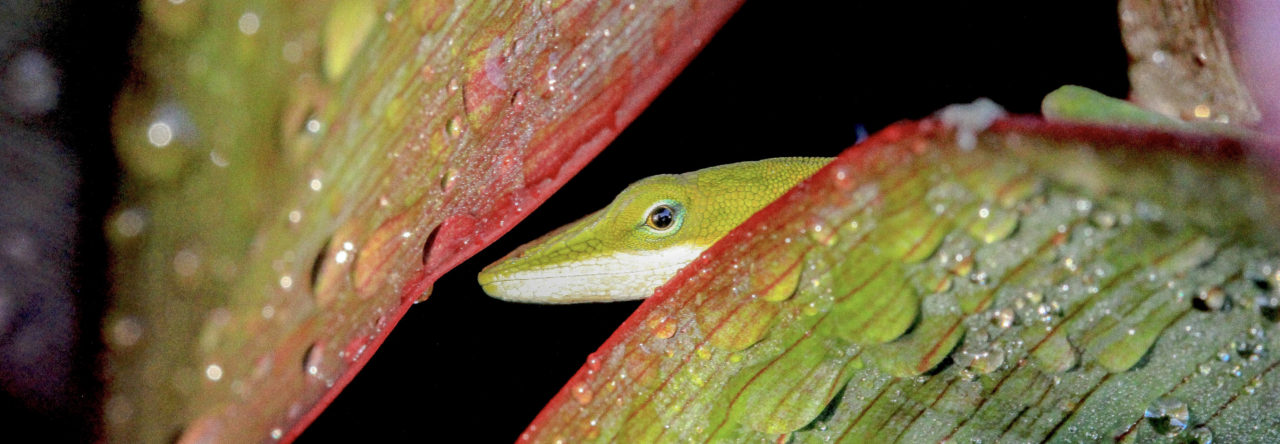While performing population research of Anolis (Norops) bicaorum at Kanahau Utila Research & Conservation Facility, we stumbled upon two males in close proximity initiating a territorial dispute. With the intention of documenting this behavior, we began to record the interaction.
In all honesty, the confrontation was a little shorter than any of us expected… It may well be one of my funniest fieldwork memories to date (despite watching it on repeat, I still can’t help but chuckle at this anole’s misfortune!) . To detail, upon the first exchange of dewlap extensions, the responding male slipped and fell clumsily from the trunk; meanwhile, his contender (who was in the process of displaying) looked on, apparently baffled at the sudden disappearance of his rival.
It appears the falling males mistake arose owing to a combination of two factors. The simple explanation is that this male lost his footing on the steep vertical trunk (which formed the battleground on this occasion), but indeed it’s rare to see an anole make such an error of judgement; the lamellae on their feet afford them excellent grip on many substrates. The second explanation owes to the fact males are completely intolerant of one another. We noted that when engaging in territorial disputes, males of A. bicaorum become entirely absorbed in their confrontation, possessed by their territorial natures and relentless in their efforts to dissuade and expel contenders from their patch. Often, competing individuals become so preoccupied that hey no longer perceive apparent dangers (e.g., the closely observing biologists). Perhaps the haphazard approach of males in territorial engagement leaves them prone to the occasional miscalculation.
If you are curious to learn more about Anolis (Norops) bicaorum (a threatened species endemic to Isla de Utila, Honduras), the most recent research by Brown et al. (2017) at Kanahau URCF resulted in published records on their geographic distribution, natural history, ecology and interactions with sympatric anoles.


